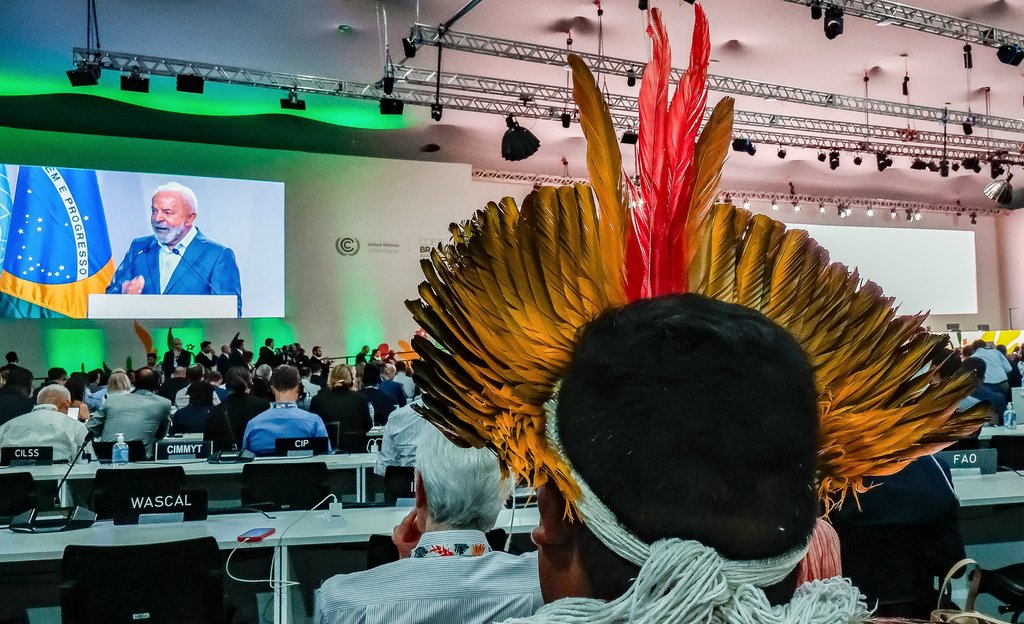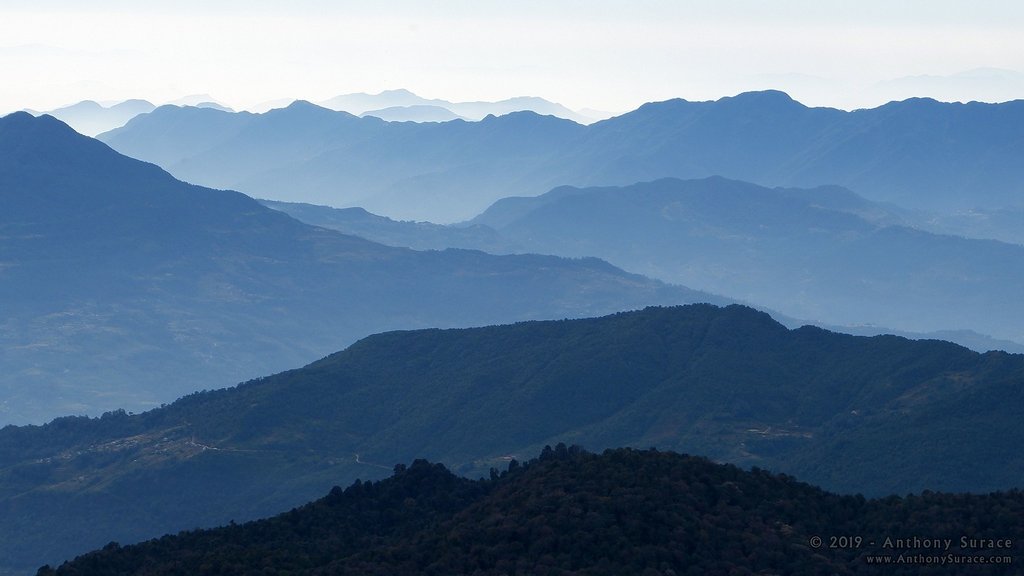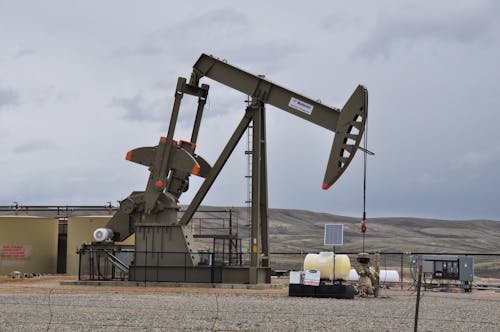Indigenous and rural communities, enlightened companies and investors, and public-spirited governments are already demonstrating that it is not only possible but advantageous to build renewable energy projects that deliver shared prosperity and recognise Indigenous leadership.Joan Carling, Executive Director, Indigenous People’s Rights International; and Phil Bloomer, Executive Director, Business & Human Rights Resource Centre
Investment into renewables is growing rapidly: according to the International Energy Agency, for every USD 1 spent on fossil fuels, USD 1.7 is now spent on clean energy. Five years ago, this ratio was 1:1. Large national and international energy companies are currently dominating the shift to renewable energy – but a growing body of evidence suggests that alternatives, such as community-owned or co-owned models are also on the rise: from microgrids and small-scale renewables to Indigenous Peoples' ownership and co-ownership of larger commercial-scale projects, these offer a significant opportunity for an energy transition that is fast, just and equitable. A truly just energy transition will ensure respect for human rights, fair negotiations and shared prosperity.
Exploring shared prosperity: Indigenous leadership and partnerships for a just transition
To avoid climate catastrophe, renewable energy capacity must triple in the next six years. The private sector plays a critical role in this energy transition – as do Indigenous Peoples. If the opportunity of a just transition is to be realised, private sector and state commitment to Indigenous Peoples’ rights and transformative business models designed to deliver shared prosperity for and with Indigenous Peoples is non-negotiable. These need to be in alignment with Indigenous Peoples’ self-determined priorities. This report, jointly produced by Indigenous Peoples’ Rights International (IPRI) and the Business and Human Rights Centre, explores the case for a renewable energy transition that centres Indigenous Peoples’ rights, interests and prosperity, as determined by them, in pursuit of a global transition that is fast because it is fair and sustainable.
Challenging renewable energy harms
Indigenous Peoples are affected by the renewable energy value chain in numerous ways, ranging from the extraction of transition minerals to the development of renewable energy projects on their lands. It is estimated that 50% of transition mineral reserves are on Indigenous Peoples' territories, and a large percentage of renewable energy potential is located on marginalised rural communities’ land, especially that of Indigenous Peoples. These projects have so far led to numerous violations of Indigenous Peoples’ rights.
Effective regulation
Many governments are pursuing policy reforms that do not respect Indigenous Peoples’ rights, especially regarding their lands, territories and resources, their self-determination and their free, prior and informed consent (FPIC). This is compounded by an increase in authoritarian governance, restrictions on civic freedoms, and attacks on those seeking to protect people and planet from harms – human rights defenders (HRDs), among whom Indigenous defenders are disproportionately affected. Enabling conditions such as robust, rights-centred corporate accountability regulation, coupled with legal, policy and financial frameworks that enable Indigenous Peoples to engage in these projects, are key to making Indigenous Peoples' self-determined decisions a reality. This will aid in reversing the historical practice of concentrating power in the hands of a powerful few, while undermining the rights of Indigenous Peoples.
Indigenous leadership
Despite the complex circumstances, many Indigenous Peoples and Nations are forging ahead in leading significant clean energy projects. In projects initiated by renewable energy companies on or close to Indigenous Peoples' lands, Indigenous Peoples are also increasingly seeking more ownership and control of these projects. Evidence points to this growing trend in many parts of the world, including Canada and the USA, but also in Kenya, New Zealand and elsewhere. Through their own self-determined decisions, some Indigenous Peoples also choose to support and lead mining projects for the extraction of transition minerals – for example in Peru and Papua New Guinea, among other places. Indigenous Peoples’ leadership and self-determination is one key to a fast, just and equitable energy transition and successful, sustainable approaches to climate change adaptation and mitigation will prioritise their expertise and knowledge.
This hub
This hub explores the potential of co-ownership models to reduce systemic risk to individual renewable energy projects and the global energy transition as a whole, through creating shared prosperity, centring Indigenous Peoples’ perspectives. Through this hub, Indigenous Peoples’ Rights International (IPRI) and the Business and Human Rights Centre will provide research, analysis and our evolving learning on this topic. We will compile resources, tools and voices of Indigenous Peoples from around the world, connecting movements and making the case for companies, investors and governments to commit to promoting and using these models to shape the future of the energy transition. Given the importance of bringing these ideas into the business and human rights conversation, we are focusing on projects that feature community involvement in commercial developers’ renewable energy projects.
IPRI/BHRC
Given the importance and centrality of Indigenous Peoples-led renewable energy projects to the transition, we are also including resources and news on projects that are fully owned by Indigenous Peoples. Moreover, we will track news on other types of benefit sharing, such as community payments, local employment and procurement, and alternative skills and livelihoods development related to renewable energy deployment, which are important for many communities in relation to large scale wind, solar and other renewable energy projects.
Key priorities
Co-ownership models with commercial partners hold promise, but also risks. Respect for human rights is the foundation for any discussion on co-ownership and benefit-sharing. This is particularly the case for Indigenous Peoples’ self-determination, rights to lands, territories and resources, and their FPIC. If grounded in respect for human rights, co-ownership models may be one important way to put power – literally and figuratively – back into the hands of those who have historically been exploited by energy and natural resource industries. Human rights and environmental risks, land grabs, displacement of communities and attacks on Indigenous HRDs can potentially be avoided, and Indigenous Peoples’ rights, including FPIC, respected and more meaningfully implemented through them. With the renewable energy industry ramping up significantly, now is an opportune time for a shared prosperity approach.
Resources and updates
Declaration of Indigenous Peoples’ Participants in the Conference on Indigenous Peoples and the Just Transition
Indigenous Peoples' representatives met to discuss the just energy transition in a conference ahead of the UN Permanent Forum on Indigenous Issues (UNPFII).
Resources and events
This is a growing area of work for Indigenous Peoples Rights International and the Business and Human Rights Centre. Find out more about our resources, events and updates here.
Key concepts and definitions
What do we mean when we talk about shared prosperity? Explore key terms.
Information from other organisations
Check out reports and tools from other organisations.
New Tonibung series teaches communities how to build their own clean energy projects
An educational module of eight sessions that deliver a proven roadmap for climate justice and community-powered energy. The main objective of this module is to give fundamentals of developing community-based renewable energy projects, mainly on micro-hydro and solar PV systems.
Community ownership of renewable energy: How it works in nine countries
Institute for Human Rights and Business spotlights Indigenous Peoples' and local community partnerships in renewable energy in Canada, Chile, Colombia, Honduras, Mexico, Norway, Scotland, Sweden and the USA.
Decarbonising electricity and decolonising power: Voices, insights and priorities from Indigenous clean energy leaders
Report highlights the increasing ownership and control of clean energy projects by Indigenous Peoples in Canada, while grappling with historical injustices and environmental impacts from past renewable energy projects.
Indigenous Peoples-led coalitions and organisations working on the renewable energy transition
Right Energy Partnership
The Right Energy Partnership with Indigenous Peoples (REP) is an Indigenous Peoples-led, multi-stakeholder partnership that aims to increase renewable energy systems that respect human rights and leverage the leadership of Indigenous Peoples to develop solutions. It has the goal of providing 50 million Indigenous Peoples access to renewable energy that is consistent with their self-determined needs by 2030.
Indigenous Clean Energy (ICE) Canada
The Indigenous Clean Energy (ICE) initiative promotes Indigenous Peoples' leadership in the transition to a clean energy future. Their mission is to promote Indigenous Peoples' leadership and inclusion through meaningful collaboration with energy companies, utilities, governments, development firms, cleantech innovators, the academic sector and capital markets.
SIRGE Coalition
The SIRGE Coalition is a collective of Indigenous Peoples and allies advocating for a just transition to a low-carbon economy while safeguarding Indigenous Peoples' rights, self-determination, and environmental well-being, with a focus on responsible mineral extraction and adherence to the UN Declaration on the Rights of Indigenous Peoples.
First Nations Clean Energy Network
The First Nations Clean Energy Network in Australia is a national, First Nations-led coalition of First Nations people, community organisations, land councils, unions, academics, industry groups, technical advisors, legal experts, renewable energy companies, and others, working in partnership to ensure that First Nations people and communities share in the benefits of the clean energy boom.
Sacred Earth Solar
Sacred Earth Solar is a women-led Indigenous Peoples' organisation that works in solidarity with impacted Indigenous Peoples' communities who are protecting their homelands by bringing solar power directly to the frontlines. Providing renewable energy allows front line land defenders to protect themselves when asserting jurisdiction of their territories while directly opposing fossil fuel projects. Energy sovereignty allows for place-based renewable solutions that align with the laws and jurisdiction of each distinct Indigenous Nation.



